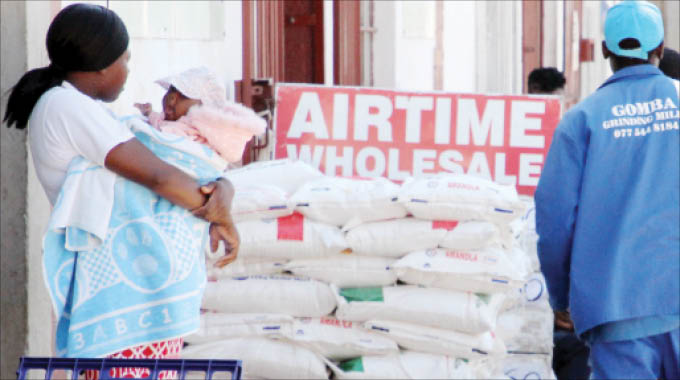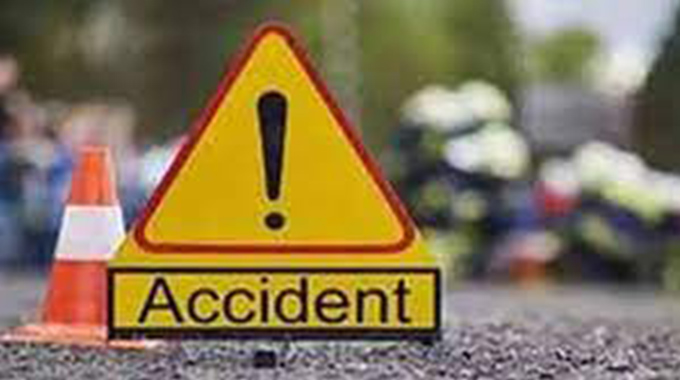Mountain that breathes life into West Nicholson community

Raymond Jaravaza, Showbiz Correspondent
THE sight of over 200 omakorokoza clad in an assortment of clothing, from torn jeans to mismatching overalls, hard at work under the simmering heat on a West Nicholson mountain can be intimidating for someone who is aware of their reputation as ‘merchants of violence’.
Driving on the Beitbridge Highway, 35 kilometres from Gwanda town, the mountain looks like any other gigantic chunk of land with dense vegetation that has turned green from recent rains.
It’s a Thursday afternoon and the Saturday Leisure crew is on a quest to explore the mountain that is now the talk of town in the gold rich area.
Talk is that Entabeni yegolide, the informal name that locals have given the place, is a mountain that breathes life into a community that calls the area home.
Before the crew sets out to the mountain, whose reputation is a mountain with a belly that carries large quantities of the precious yellow metal that has drawn young men from far-away areas, we locate one man that is in charge of the mining operations.

Mining activity on the mountain
His is none other than former broadcaster Malakhi Nkomo, whose voice was an almost permanent feature in the houses of Radio 2 (now Radio Zimbabwe) listeners way back in the day.
He has long swapped the mic for a pick and shovel – gold mining tools.
“Illegal gold miners had started causing havoc at the mine, disrupting operations that were being run by a white miner named Stalin so he approached me and proposed that I superintend operations on one side of the mountain while he continued mining on the other side.
“His idea was that the locals should also benefit from mining on the mountain, but he wanted it to be done in an orderly manner to try and avoid a situation where it’s a free for all and omakorokoza end up fighting and killing one another over gold like it happens in other places such as Filabusi and Shurugwi,” explained Nkomo.
The first step to a violence free mining operation, according to Nkomo, was to register the other side of the mountain with the mining regulatory authorities and invite interested small artisanal miners to start work.
“The notion out there is that gold mining is all about violence and shedding blood, a belief that omakorokoza think is the right way of doing things, so I had to sit down with them and explain that here at Entabeni, we intended on doing things differently.
“Every one of them is registered with us. We have their full details and we also work hand in hand with the police to weed out criminal elements who come here under the guise of mining. Some of these guys are wanted criminals in other provinces for violence related crimes in gold mining and come here to evade arrest so we make sure that the police have access to everyone that works here,” he explained.

Shacks on the mountain
Most gold wars are fought on tribal and regional lines, leaving victims and perpetrators alike with serious injuries and in extreme cases, death.
“We’ve laid down rules that every miner adheres to. No one shall be discriminated on tribal lines or where they come from. Alcohol and drugs are not allowed on the mining site at the mountain and most importantly, we kick out anyone accused of violent behaviour towards other miners,” he added.
The mountain itself is a hive of activity.
At the foot of the rising landscape, makeshift shops selling food, cigarettes, drinks and airtime manned by enterprising women welcome the Saturday Leisure crew as we start our journey to the top of the mountain.
An employee of the Entabeni Mining Concession explains that the makeshift shop owners and food stalls are also registered, but are not allowed to sell alcohol.
Not everyone on the mountain is a miner that goes deep into the scattered shafts to dig out the precious metal.
We observe a group of younger men carrying loads in used cement bags on their shoulders coming down the mountain. They are referred to as omaholoha.

Piles of ore ready to be transported to stamp mills
The loads they are carrying on their shoulders are actually ore from the shafts to be transported to stamp mills. Stamp mills are machines that crush the ore by pounding rather than grinding for extraction of gold.
“I charge Z$2 to carry each bag from the shafts, down the mountain and put the ore in one heap, which the guys that are mining underground will later take to the stamp mills. On a busy day, I can make about 40 trips carrying the ore,” said Mtshumayeli Nkala, a 21-year-old who has been working at the mountain for the last six months.
Building good relations with her customers gives one MaMlambo the competitive edge over other women selling food and various items at the foot of the mountain.
“These guys spend recklessly when they sell their gold so they’re always broke when they return to the shafts so I give them food and cigarettes on credit and they pay later.
“There are few individuals that give me problems, but the majority of my customers pay me the moment they sell their gold,” says MaMlambo.
One man makes a killing by selling used cement bags that the omaholoha use to carry the ore from the mountain. Kuda Muridzi says he scours construction sites buying used cement bags which he resells at the mountain for Z$3 each.
“It’s not possible to move the ore from the shafts without using used cement bags so they need them every day and that’s where I come in. I sell about 80 to 100 bags a day, but the most difficult part is sourcing them,” says Muridzi.
About three kilometres from the mountain is Mbembesi Business Centre, a small, but busy area with a couple of bars, shops, restaurants, a fuel station and boarding houses. This is where the miners wind down after a hard day’s work and spend their hard-earned cash.
Nkomo, who the young artisanal miners seem to have so much respect for, explains in his office that he is proud that gold from the mountain is going to the Reserve Bank of Zimbabwe mineral buying arm Fidelity Printers.
“We keep records of all the gold that is extracted from the mountain and sold to Fidelity Printers and I’m happy that we’re also contributing to the economy in our own small way.
“The late President Robert Mugabe once said gold is only gold when it’s mined from the ground. Some people call us omakorokoza, but we like to think of ourselves as gold miners who contribute to the economy of the country,” he says.
As we leave his office, he signals to a truck driver to head for the mountain where a group of miners want their ore to be transported to a stamp mill nearby.
“These trucks are owned by two young men who started off mining at the mountain and had the wisdom to invest their money and start a business,” Nkomo adds. — @RaymondJaravaza.










Comments